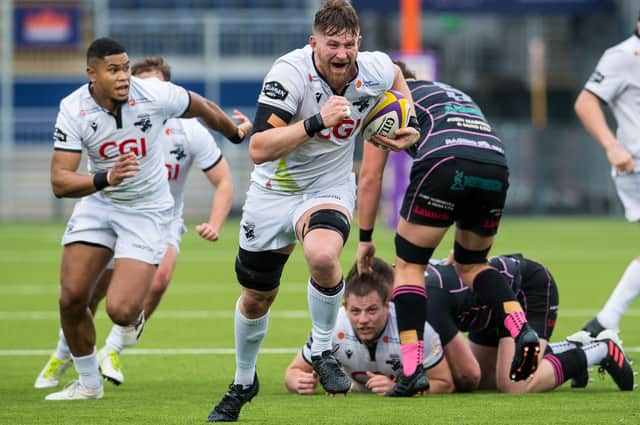Competitions lined up at double for Southern Knights


Proposals to expand the semi-professional competition to take in other teams outwith Scotland have been dropped and the Melrose-based team – last season’s table-toppers, though not champions – will again be part of a six-strong competition.
The Borderers’ opponents, as in the last two seasons played, in 2019 and 2021, will be Ayrshire Bulls, Boroughmuir Bears, Heriot’s, Stirling County and Watsonians Rugby.
Advertisement
Hide AdAdvertisement
Hide AdTwo competitions are being lined up this year rather than just the one contested previously, plus a one-off match harking back to Scotland’s old district championships.
The first, starting in mid-April, will be the Fosroc Super6 Sprint Series and it will be followed in late summer by the Fosroc Super6 Championship.
The first will see all six teams playing each other once and a league will then be formed, with the top three teams playing the bottom three over three weekends of play-offs to determine final placings.
A one-off match between teams representing the east and west of Scotland will follow.
Advertisement
Hide AdAdvertisement
Hide AdPlayers from Southern Knights, Heriot’s and Watsonians will join forces to represent the east, and they’ll be up against a western alliance picked from Ayrshire Bulls, Stirling County and Boroughmuir Bears’ squads.
The championship proper, won last time round by Ayrshire Bulls, will kick off in early August, with every team playing each other twice, followed by play-off semi-finals and a final.
Over the course of 2022, teams will play up to 20 competitive fixtures.
Due to all the home rugby unions still being wary of the Covid-19 pandemic, a planned cross-border contest has been shelved.
Advertisement
Hide AdAdvertisement
Hide AdAs in previous years, five Scottish Rugby Academy contracted players will be allocated to each of the six clubs alongside training full time at either Edinburgh or Glasgow Warriors.
Ayrshire Bulls became the first ever Super6 champions in October by beating Southern Knights, with Rob Chrystie as head coach at the time, since replaced by Bruce Ruthven, 26-16 in 2021’s final in Edinburgh.
All six teams will be given funding by Scottish Rugby to recruit full-time general managers.
Scottish Rugby performance director Jim Mallinder said: “The Fosroc Super6 made huge developments on the field last year.
Advertisement
Hide AdAdvertisement
Hide Ad“The type of game that was able to be played in the late summer window is conducive to developing players in line with the speed and intensity that the professional game is played at.
“To now have two windows in which to play Super6 rugby, the spring and late summer, is hugely beneficial in helping players develop and prepare better for a professional rugby environment.
“For Super6 players to have the opportunity to play between 17 and 20 competitive games full of intensity and physicality is what was always planned for Super6.
“The aims and objectives of Super6, to bridge the gap between the amateur and professional game, have not changed since its inception.
Advertisement
Hide AdAdvertisement
Hide Ad“I’m really pleased that we have been able to allocate existing funding to each team in support of the general manager roles.
“Whilst we’ve previously invested on field, we now feel that the time is right to support and invest in the teams off field within budget.
“The general managers at each of the teams will be responsible for developing and improving all off-field activities, prioritising commercial expansion and overseeing the marketing and communications strategy for each of their teams.
“We believe that by doing this, the teams and clubs will become more sustainable and able to create better environments more like the professional rugby game.”